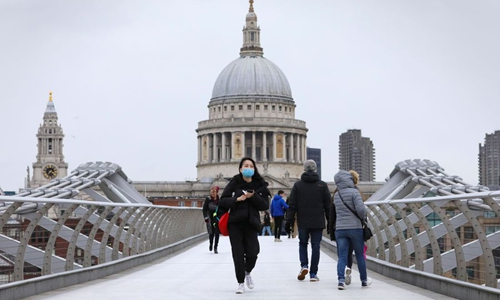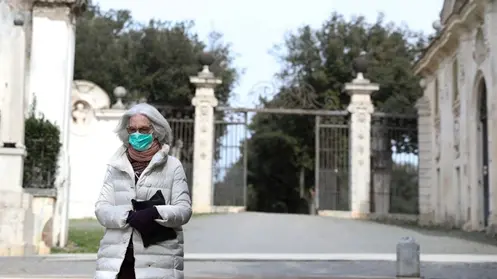After his usual casual reaction to grave national and international matters, U.S. President Donald Trump has finally woken up to the reality of both the disruptive and fatal nature of the COVID-19 pandemic.
Previously, Trump had trashed warnings from the U.S. federal health authorities, akin to his negative attitude towards the threat climate change posed to both America and the world.
Beginning Friday evening, the U.S. banned all travel from Europe, except for passengers from the United Kingdom, which activated Brexit at the end of January 2020. Further, the ban does not affect American citizens, and maybe waived on a case-by-case basis.
In his televised statement, Trump stated that the EU travel restriction would apply to passengers, in addition to cargo and trade. But the White House later clarified that the restriction would not extend to trade and commerce. Still, the announcement led to the tumbling of European stocks.
Although in the early stages of the discovery of the novel coronavirus in central China's Wuhan City, Trump dismissed it as a non-threat to the U.S. and the world, he banned incoming traffic from China in a move aimed at stemming a crisis similar to what is generally being faced in Europe.
The apparent seriousness and total turn-about by Trump could be as a result of the World Health Organization's classification of COVID-19 as a pandemic. As if on cue, the highly lucrative American sports leagues, including the National Basketball Association, Major League Baseball, Major League Soccer, the National Hockey League, and the National Collegiate Athletics Association have all suspended scheduled games for the foreseeable future.
European leaders have reacted with dismay for being blindsided by Trump's announcement to block travel from 26 European countries, saying that "the EU disapproves of the fact that the U.S. decision to impose a travel ban was taken unilaterally and without consultation."
Going by precedence in recent years, however, the action by Trump's administration should not be that surprising. It is not the first time the U.S. and the EU have been engaged in a strained relationship, particularly in the last four years during Trump's first term in office. Since 2016, the allies have been in a standoff over several policy disagreements.
These include the longstanding controversy over funding of the North Atlantic Treaty Organization (NATO), with Trump stating that America wishes to renegotiate its funding ceiling of the defense group or discontinue its support altogether. Apparently, Trump does not see NATO of any strategic use anymore in America's geopolitical interests.
European diplomats cite other areas of disagreement between the EU and Trump's administration to include the use of tariffs as a tool of blackmail, withdrawal from the Paris climate change accord, America's mishandling of the Iran nuclear deal and, its role in the Middle East crisis, particularly the shifting of its embassy to Jerusalem in 2019.
During his term, Trump has also cast aspersions on individual European countries and seemingly given tacit support to nationalist parties in some of these countries. He has referred to Germany as "crime-ridden," due to its immigration crisis.

A woman wearing a mask walks across the Millennium Bridge in London, Britain, March 9, 2020. /Xinhua
But even amidst the angst, leaders in Europe are not in denial about the cataclysmic nature of COVID-19. Addressing the British Parliament on Wednesday, UK Prime Minister Boris Johnson stated that the pandemic is "the worst public health crisis in a generation", saying that many families would lose their members.
In a press conference on Thursday, French President Emmanuel Macron noted that COVID-19 is the worst health crisis in a century, with his government ordering the closure of all learning institutions in the country to curb the spread of the pandemic. Among other measures, France also asked its citizens to work from home and restricted general travel by its citizens.
Italy is the worst-hit country in Europe by the virus, which has so far claimed over 1,000 lives. Observers attribute the crisis in Italy to the country's delay in instituting preventive measures against the virus, which explains the increasing prevalence and mortality rate. Italy's government has placed more than half of the country on lockdown.
It is not just the U.S.that is restricting traffic to and from Europe, as part of the crisis' management. For instance, Kenya's national carrier, Kenya Airways, has suspended flights on the Rome (Italy) to Geneva (Switzerland) route for a month and a half over COVID-19 fears.
The country's health cabinet secretary on Tuesday revealed that the country has over 1,500 Kenyans trapped in Verona, Italy's COVID-19 epicenter. In contrast, only 90 students are in quarantine in Wuhan. Kenya is till now free of the virus.
In recent times, there was some hope of a rapprochement between the U.S. and Europe. Before the escalation of the COVID-19 crisis, observers had noted the change of tone, albeit non-committal, by U.S. Secretary of State Mike Pompeo, who had expressed his desire for a return to a mutual understanding of issues.
But the new controversy arising from the travel ban will definitely bring back the tension, with the EU in a quandary on what position to take in the U.S. November elections. The re-election of Trump might worsen the already deteriorating relations to irreparable levels.
(CGTN)
 简体中文
简体中文

